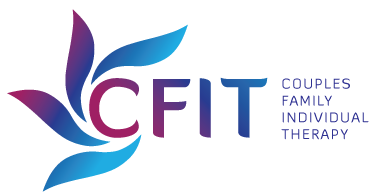Beginning 2020 with a Fresh Start
/
The holidays are known as a time of hustle and bustle. School systems and courtrooms essentially shut down between the Christmas holiday and New Year’s Day. People purchase the right gifts for their family and friends, then pack luggage and cope with traffic or airport security lines or they prepare to host several family members that are visiting. And now that 2020 has arrived, people consider losing weight, re-examining one’s career, or reflect upon concerns and feelings that arose during the holiday which motivate changes.
Treatment centers and counseling offices also notice an increase in utilization. Some of the reasons people seek assistance during this New Year include the following:
Disagreement with a loved one about alcohol or other drug use, and the resulting consequences.
Recognizing sadness after a family visit that did not meet expectations.
Wishing communication with a spouse or partner could be improved.
Missing a loved one who passed away and the holiday triggered grief.
Still feeling anxious or stressed after the holiday period ends.Job dissatisfaction, especially if you dread returning to work after the holiday break.
Clinicians help clients create goals associated with the catalyst for seeking help. To successfully reach those
identified goals, consider utilizing the SMART goals format:
Specific: Being able to answer who, what, where, when, and why about the objectives.
Measurable: Establishing criteria for your objectives to be reached.
Attainable: Ensuring that the goals established can come true.
Realistic: Ensuring you are willing to and can execute completion of the goal.Timely: Setting deadlines for achieving the outcomes
For someone who decides to stop using drugs, an example of a SMART goal could be for the next ninety days, I will remain abstinent from alcohol and other drugs, avoid bars and parties, attend at least
three weekly 12-step meetings, and create a relapse prevention plan with both my sponsor and therapist.
For someone who wants to improve communication with his/her partner, SMART goals could include any of the following ideas: for the month of January, my partner and I will set aside twenty minutes daily to remind each other why we love one another, negotiate a monthly budget to reduce the intensity of arguments about finances, and to discuss any disappointment experienced that day so to re-build a greater level of mutual trust.
For someone who is recognizing grief or unmet expectations from family, shift your focus back to finding joyfulness or happiness. An example of a SMART goal in this case would be, during January, I will schedule a social event each weekend with a trusted friend that is likely to have me laugh on occasion and feel
grateful that I went out rather than remained sad at home by myself.
For someone who has decided to change jobs because of dissatisfaction in the workplace, SMART goals might include for the next three months, I will distribute my updated resume to at least five LinkedIn connections weekly as well as apply for a minimum of three jobs online weekly with a minimum salary of $xx,000 (specify the amount).
Clinicians who collaborate with you to establish SMART goals will not only monitor your progress, but will provide you with an opportunity to reflect on your feelings and responses to your progress and success as well as discuss any roadblocks your experience along the journey.
One other blessing: we live in South Florida where you can take a brief respite to stick your toes in the sand and your feet in the ocean as an affirmation that you reside in a wonderfully therapeutic place to live as you
address any concerns that served as a catalyst for seeking help! Happy New Year.


